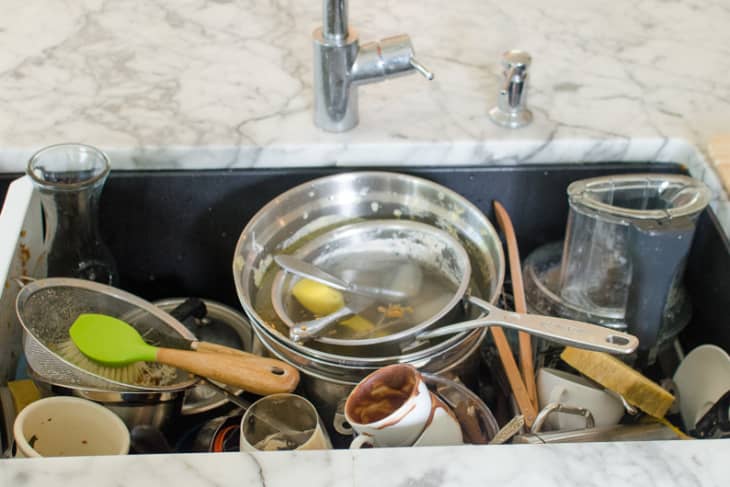The Etiquette Tip Everyone Should Read Before Heading to a Holiday Party
Say you’re at a close friend or family member’s home for a holiday meal. Everybody’s lingering around the table, chatting, and the host starts collecting plates and announces they’re going to get started on dishes. On the one hand, you think you should offer for help — it’s only the polite thing to do, right? On the other hand, you’re really enjoying catching up with fellow guests and sipping your after-dinner drink. What’s your move?
Etiquette, you’d think, may suggest you get up from the table and start washing dishes as a sign of gratitude. But if your primary goal is to be respectful of your host, then there’s a clear path forward — and, depending on the circumstance, it may not actually involve touching a single dish.
According to etiquette expert Nick Leighton, co-host of the Were You Raised By Wolves? podcast, it’s important to understand exactly what etiquette is all about before jumping in to help unprompted. “Etiquette is about being mindful of other people’s time, space, property, and feelings,” he says. “Everything at this gathering should come back to that.”
In general, Leighton says, it’s polite to offer your help (unless you’re at a super formal meal where staff are hired to serve and clean). The important thing is to respect the host’s wishes if they decline your offer. “Unless there’s some very extenuating circumstance where the host’s ‘no’ is really not a ‘no’ for some reason, I think you have to take that at face value and just enjoy being a guest,” Leighton says.
There are a number of very good reasons your host may decline your offer to help. For example, they may have their own sense of timing and how they want the evening to unfold. They also know their home better than you do, including what goes where and how.
For special occasions like the holidays, people also bring out their nicer plates and flatware, which may have special needs for clearing and cleaning. You can easily chip china if you stack it, for example, and certain things may not go in the dishwasher or be safe to soak. Another reason to respect your host’s ‘no’? “Every host knows cleaning is just part of the deal,” Leighton says. “Plus, some people really enjoy doing it.”
There’s one obvious time stepping in to help override etiquette rules: If someone’s health and safety are on the line. For example, if your frail grandmother is wobbling on a step stool by the cabinet, it would make sense to help her lift the stack of plates. But before you jump in, think about grandma’s feelings. Will your offer to help make her feel bad and highlight the fact that she’s not as young as she used to be? Helping out may seem like the polite and respectful thing to do, but true etiquette takes the other person’s wishes at face value — even if they’re just being stubborn.
This post originally appeared on Apartment Therapy. See it there: Read This Etiquette Expert’s Tips Before You Offer to Clean at Someone Else’s House
